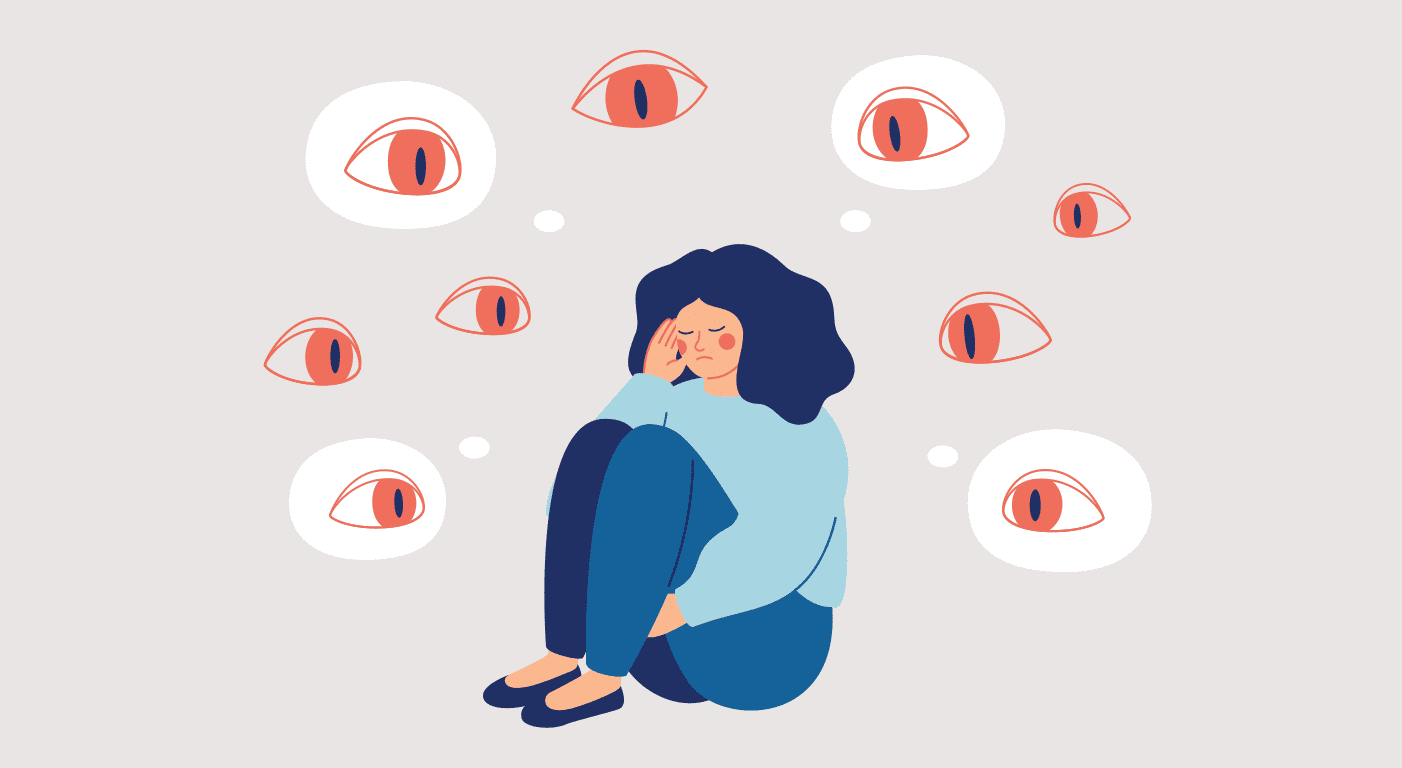Social anxiety explained

A case of stage-fright or pre-emptive nerves are common. When the anxiety prevents you from living fully, it becomes more than shyness – but a mental-health concern.
Social anxiety disorder is categorised by a constant, intense fear of scrutiny and judgement. This makes it hard to enjoy social situations and form meaningful connections. Many people looking from the outside view social anxiety as shyness or nervousness, whereas it can be isolating and overwhelming. If left undiagnosed and untreated, it can have a devastating effect on one’s life.
It's not just in the mind
There is growing global concern surrounding social anxiety – and South Africans seem to be especially vulnerable to it. According to the South African Journal of Psychiatry, social anxiety is one of the most prevalent psychiatric disorders in the country, affecting 3% to 16% of us at some point in our lives.
The onset of the disorder usually occurs during late childhood and, if untreated, can result in substance abuse as well as mood disorders in adulthood. Moreover, early-onset social anxiety results in underdeveloped life and social skills. But the reason for the disorder doesn’t solely come from the person’s own thoughts.
The National Institute of Mental Health says that causes range from genetic factors (between 13% and 76% inheritability, as suggested in a review in Archives of Clinical Psychiatry) to neurobiology. Environmental factors, such as overcritical-, controlling or protective parents, being teased or bullied, experiencing family conflict, abuse, rejection and other childhood trauma all contribute to social anxiety.
Gauteng-based psychologist Illeana Cocotos says, “Social anxiety is indicative of a flight response from the past, which is re-triggered in one’s day-to-day environment. As such, an individual with social anxiety disorder is responding in the present to a past, unresolved trauma.”
Know the signs
Acknowledging the signs means you can get help – the earlier the better. Watch out for indicators of intense fear and acute embarrassment, including sweating, blushing, trembling, a racing heart, an upset stomach, a choking sensation, dry mouth, shortness of breath, nausea, light-headedness, dizziness, blurred vision and an urge to urinate. These should be monitored if they occur often.
Symptoms arise during times when you feel socially exposed or judged such as public speaking or having to perform in a class or meeting, being interviewed, standing in a room where others are seated, attending social events, eating with company, filling out forms, talking on the phone or using public toilets. Some people who feel discomfort in some of these situations can find comfort among family, close friends and colleagues, while others feel they have no escape or peace.
Feelings of fear and embarrassment are worsened by low self-confidence, negative thoughts about yourself, and how others will see and react to you. It may stem from memories of previous incidents where you felt overexposed or judged.
‘‘At the time of the original trauma, the beliefs, emotions and sensations in your body get locked in your nervous system,’’ says Illeana. ‘‘This remains unprocessed and, when you are confronted with situations that resemble the past trauma, those negative beliefs are re-triggered. It’s as if the present situation is viewed through your past lenses. This results in the anxiety.’’
A person will avoid social situations or try to escape their racing thoughts by leaving events early or turning to alcohol or other substances to help them ‘relax’. In turn, their overall well-being is compromised, which further adds to feelings of failure and depression.
Take action
A study published in European Psychiatry found that 23% of patients with social anxiety disorder had severely impaired quality of life. To avoid such repercussions, speak to your healthcare provider about screening you for any mental disorders.
Your GP or clinician should first check for any underlying medical conditions, such as an under- or overactive thyroid, which can contribute to feelings of anxiety. Blood tests can reveal the amount of TSH (thyroid-stimulating hormone) produced, as well as indicate low levels of vitamins B or D, which affect mood. Further treatment with a psychologist may be suggested, where you’ll create a plan to help you learn coping strategies, develop new skills and improve your self-esteem.
Talking through your thoughts and feelings will allow you to find acceptance and move forward. “Going back to the trauma that caused the disorder is extremely useful, as it deals with the actual psychic wounding,” Illeana says.
The process may require you to deliberately expose yourself to situations in which you feel anxious. This is to allow you to recognise where and how you have control over yourself. Sometimes, you need to feel worse before you can feel better.
Helpful resources
– Books on anxiety can be useful for both adults and children.
– Join a support group. Contact the South African Anxiety and Depression Group:
sadag.org, call 0800 567 567 or SMS 31393.
By: Glynis Horning
Text courtesy of Balanced Life magazine
Related articles

Latest Jet club magazine
We’ve got the latest trends, exciting prizes and exclusive savings just for you!
Jet Club will not pass your details to anyone else. By clicking the subscribe button you confirm you have read and agree to the Jet Club Terms and conditions and Jet Club Privacy Statement.
Subscribe

